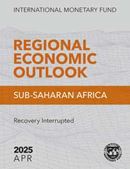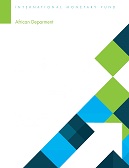This web page provides information in on the activities of the Office, views of the IMF staff, and the relations between Kenya and the IMF. Additional information can be found on Kenya and IMF country page, including official IMF reports and Executive Board documents in English that deal with Kenya.
At a Glance
- Current IMF membership: 191 countries
- Kenya joined the Fund in February 3, 1964; Article VIII.
- Total Quotas: 542.8 Million
- Loans outstanding: Stand-by Arrangement SDR 352.82 Million SCF Arrangements SDR 135.70 Million
- Article IV/Country Report: January 17, 2024. (IMF Country Report No. 24/13)
Office Activities
-
What is the new Kenya program?
Kenya has large financing needs on account of the adverse effects that the COVID-19 pandemic has created. The government has developed a medium-term reform program to address the challenges, articulated by the fiscal framework laid out in the recent Budget Policy Statement. The IMF is providing policy advice and financing to support the government’s program.
June 15, 2021
Statement on Standard Media Article
Standard Media on July 15 posted an article under the title “IMF: Kenya is world’s second most uncertain for investors.” The IMF fully dissociates itself with the content of the article. Please be aware that the World Uncertainty Index that is citied in the article, developed independently by researchers, is not an official IMF output.Fraudulent Scam Emails Using the Name of the IMF
We would like to bring to the notice of the general public that several variants of financial scam letters purporting to be sanctioned by the International Monetary Fund (IMF) or authored by high ranking IMF officials are currently in circulation, and may appear on official letterhead containing the IMF logo. The scam letters instruct potential victims to contact the IMF for issuance of a “Certificate of International Capital Transfer” or other forms of approval, to enable them receives large sums of monies as beneficiaries. In other cases, they claim to offer loans against payment of a negotiation fee. The contact e-mail information is always BOGUS.For more information please see Fraudulent Scam Emails Using the Name of the IMF
IMF's Work on Kenya
-
Press Briefing Transcript: African Department, Spring Meetings 2025
April 25, 2025
Press Briefing Transcript: African Department, Spring Meetings 2025
-
Press Briefing Transcript: Julie Kozack, Director, Communications Department, March 27, 2025
March 27, 2025
Good morning, everyone, and welcome to today's IMF Press Briefing. It's great to see you all, those of you here in person and, of course, our colleagues online as well.
-
IMF Staff Concludes Visit to Kenya
March 17, 2025
A staff team from the International Monetary Fund (IMF), led by Ms. Haimanot Teferra, visited Nairobi during March 6-14, 2025.
-
Kenya: Technical Assistance Report-Crypto Regulation and Legislation
January 8, 2025
Series:Technical Assistance Report No. 2025/001
-
Transcript of IMF Press Briefing, December 19, 2024
December 19, 2024
MS. KOZACK: Good morning, everyone. Great to see you all here in person, online, and online and welcome to this IMF Press Briefing. I'm Julie Kozack, Director of the Communications Department.
Regional Economic Outlook
April 25, 2025

A hard-won recovery in sub-Saharan Africa has been overtaken by recent events. The sudden shift in the global outlook has clouded the region’s short-term prospects and made policy even more challenging. Adding to existing policy complications there is now an extra premium on resilience—a country’s ability to rebound quickly from future shocks. The region’s progress and perseverance over the past few years is notable, but continued efforts will be needed to sustain the recovery and enhance the region’s resilience. Caution, consistency, and credibility are now more important than ever.
Read the Report
Departmental Papers on Africa




